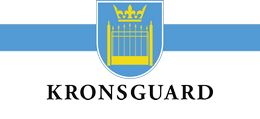Ripping / Tear-Off
Device on the sealing lug of plastic seals, which allows the opening of the seals without tools. The tearing device is also called breaking point. They are used everywhere where seals have to be removed quickly. For example, as a fire extinguisher seal, first-aid kit or first aid box seal.
Known Consignor
Background
The security rules were issued following the terrorist attacks of 11 September 2001. These rules are intended to ensure that only safely classified cargo is loaded into the aircraft. Unauthorized access by third parties can thus be prevented and a security-tested supply chain can be created.
Official Approval
If the air cargo is not to be inspected by a third party, the shipper must have an official approval as a known consignor. Companies that want to certify a business location in Germany as an officially known consignor must submit a safety program. For this our security tapes and labels find optimal application possibilities. Pallets, boxes and packages can be quickly and easily secured with these tools - manipulation or unauthorized access is avoided.
The content of the company-specific safety program is provided by the Federal Aviation Office on its website.
The Known Consignor is a company that must comply with certain safety regulations when shipping by air. Before air cargo can be loaded onto an aircraft, accurate and defined security checks must be carried out. These checks are carried out and documented by a known consignor and a regulated agent (forwarder).
Advantages
The check-in process for the known consignor is thereby simplified and accelerated considerably. from shipping to loading into the airliner, no further checks are required. The supply chain is thus ensured and all legal requirements and regulations have been complied with.
Bolt Locks
Or container seals consist of a steel pin and are mainly used for securing containers, trucks or swap bodies. Bolt seals are usually classified as high-security seals in accordance with the ISO standard ISO / PAS 17712 and thus comply with the C-TPAT requirements.
C-TPAT
The term Customs-Trade Partnership Against Terrorism (C-TPAT) refers to a voluntary US initiative for supply chain security against terrorism. C-TPAT can be seen as a US counterpart to the European Authorized Economic Operator (AEO).
By adhering to certain security measures, participating companies receive a special status. In return, they will be facilitated the customs clearance.
This program requires the use of safety seals that have been classified as a high-security seal according to the valid ISO standard ISO / PAS 17712.
Plastic Seals
Plastic seals whose sealing strip can be variably adjusted to the object to be protected. A pull-through seal should always be pulled as far as possible for safety reasons. A large loop must not arise with these seals.
Pull-through seals are available in countless colors, lengths and finishes and are suitable for a variety of different applications.
Fix Length Seal
These seals have a fixed length and can be used by the user for special items to be secured that do not permit or require a draft.
High-Security-Seal
This includes bolt seals and strong cable seals. They can only be opened with the help of a bolt cutter and can considerably delay the penetration. Their demanding mechanical properties are tested by test series to specified minimum requirements. After reaching these requirements, the product is certified by a document of the testing company.
Indicative Seals
Mostly plastic seals. They are opened by hand or with the help of scissors or pliers and are mainly used for the transport of empty containers.
ISO/PAS 17712
This is an ISO standard that describes the physical properties of security seals. This results in the assignment to the following classes:
- Indicative Seals
- Security Seals
- High Security Seals
The acronym stands for International Standard Organization and Publicity Available Specifications.
ISO/PAS 17712:2010
Since the 3rd of September 2010 the newly revised ISO / PAS 17712: 2010 standard is valid.
Cable Seal
These seals consist of a steel cable and an aluminum body. The cable is available in different diameters and is classified as a high-security-seal with a diameter of 3.5 mm and an ISO / PAS 17712 certificate.
Plastic Seals
Plastic seals are predominantly made of polypropylene (PP) and are classified in the category of indicator seals.
Metal Strap
This is a security seal, which is made of sheet steel and is used above all for the sealing of containers and trucks.
Seals
Is a seal for container and housing. By using seals, a housing or container is sealed.
If the seal is destroyed or removed, this is an indication that the container or housing (unauthorized) has been opened.
Lead seals were already used in the Middle Ages. Due to the high risk to the environment and health and the low security against manipulation, seals made of plastic, aluminum, sheet metal or steel are increasingly being used today.
The applications of seals are virtually unlimited. They are e.g. used as a seal for measuring instruments (gas meter seal, water meter seal, Strommählerplombe), as Zollplombe, as a container seal for international maritime traffic, as a clothing seal, as a first aid kit seal, etc.
For secure identification, the seals are usually provided with a serial number.
In some areas, seals are replaced by tamper-resistant security labels. These can not be removed without being destroyed.
Security Seals
These are often sheet metal and cable seals. They offer only limited protection.


